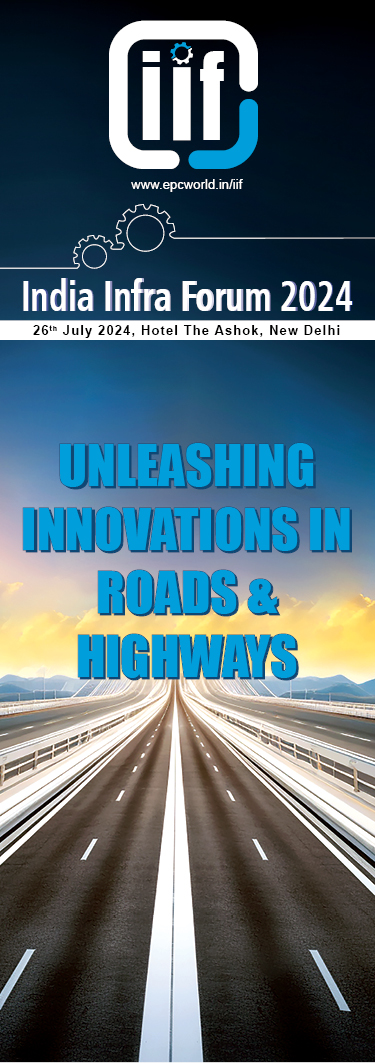Fast tracking infrastructure project approvals and its completion will enhance confidence in private players and will allow their greater participation in real estate development. JC Sharma, VC and MD, Sobha Limited
India has an impending need for building infrastructure, what are your views on this?
The real estate and construction sector has been playing a crucial role in the overall development of India’s core infrastructure. Needless to stress that the real estate industry’s growth has generally been linked to the developments taking place in the retail, hospitality and entertainment (hotels, resorts, cinema theatres) industries, economic services (hospitals, schools) and information technology (IT) enabled services (like call centres) and vice-versa.
A recent report by EY estimates that by 2030, about 40 percent of the country’s population—close to 600 million people—will be living in cities. This just goes to show that the need for infrastructure and housing facilities is only going to increase in the future. Infrastructure is pivotal in unlocking the potential of existing cities by decongesting them and developing new suburban towns & cities to accommodate the growing population. Hence, a multi-pronged approach is required that aims at strengthening urban infrastructure and ensures that it precedes real estate development. Fast tracking infrastructure project approvals and its completion will enhance confidence in private players and will allow their greater participation in real estate development.
Hence, the government has sufficient scope for intervention not just in facilitating investments but also in fulfilling growing housing demand, besides propelling growth in urban as well as rural infrastructure. According to a recent report by India Brand Equity Foundation, India needs INR 31 trillion (US$ 454.83 billion) to be spent on infrastructure development over the next five years, with 70 per cent of the funds needed for power, roads and urban infrastructure segments. Considering the need to push infrastructure development, the Government has already allocated INR 200 billion towards building infrastructure.
The term slowdown has become synonymous with real estate, is this for real or media generated, what is your feedback?
In the last few years, the real estate market has definitely slowed down owing to macro-economic factors such as high interest rate and high inflation. This resulted in negative sentiments that kept the prospects at bay, giving rise to high unsold inventory parked with the developers. Additionally, increasing input costs didn’t allow the developers to reduce property prices as per market expectation.
Real estate sector is cyclical and we believe that the worst is behind us. We have witnessed an improving sentiments towards the end of FY 2015-16. The year saw positive developments on the economic and policy fronts such as relaxation of foreign investment norms, removal of Dividend Distribution Tax(DDT) on income generated under REITs and reduction of interest rate. Another significant development has been the enactment of the Real Estate (Regulation and Development) Act or RERA, which will usher in greater transparency and professionalism in the sector and help re-instil confidence among customers. We expect these factors to trigger a sustained demand recovery in the long run and anticipate a better current fiscal year.
Construction and real estate are two sectors which have readily made use of new technologies to offset cost and enhance quality? What are the new generation technologies that Sobha has adopted in its projects?
An evolving customer requirement, increasing construction costs and competition have paved the way for emergence of various cutting-edge technologies in the sector. As developers are becoming more customer-centric, they are ready to transform their business through technological advancement.
Last year, SOBHA launched ‘Sobha Dream Acres’, the first of its kind under its new segment - ‘Sobha Dream Series’ at Balagere, Bengaluru. This project is a unique residential development to cater to the aspirations of salaried professionals, perfectly suited to the requirements of nuclear families and those who prefer premium quality compact luxury homes replete with world-class amenities. Aligned with our ‘never compromise’ philosophy, this project is being developed using cutting-edge integrated Precast technology employing best-in-class machinery imported from Germany and Italy installed at the project site. The ‘Sobha Precast’ plant erected at the project site is probably one of the largest and most modern set up catering to the large scale construction with unmatched quality and speed.
Precast technology gives SOBHA a better control on construction cost and quality. Using precast minimizes rework and plastering, reduces dependence on work force and ensures quicker construction time (faster cycle time of slab). On a conservative basis, precast technology is expected to bring down the construction cost by 10 to 15 per cent.Additionally precast offers advantage of factory discipline as compared to conventional site set up.
What are the green solutions Sobha group has put to use in its projects?
In simple terms, green solutions refer to the elements that go into every stage of a construction development with environmental considerations. Its importance is emphasised on resource efficient design, energy and water savings and the project’s overall impact on the environment. As a responsible developer, we ensure sustainability in all our projects. Every project has a large area dedicated for greenery and follows green practices that meet Indian Green Building Council (IGBS) standards such as rainwater harvesting, sewage treatment plant, advanced electrical energy management, wastage recycling, optimum use of natural resources etc.
While there are many methods of constructing a green building, the implementation of Value Engineering (VE) has played an important role in effectively executing such projects. In recent times, VE is being implemented in high-rise buildings that are gaining popularity. It is a technique through which the value of the output in a system is maximized by associating its performance with costs.
SOBHA has implemented the technique in many of its high-rise building projects. VE has helped in lowering the cement composition in every cubic meter of concrete, mitigating the carbon dioxide (CO2) emissions into the atmosphere. Not only does VE helps in containing the CO2 emission but also results in lot of operational cost savings. Additionally, SOBHA uses eco-friendly products like GGBS (Ground granulated blast furnace slag) for manufacturing products such as concrete blocks and paver units.
What is the USP of brand Sobha?
The unique backward integration model is one of our key strengths. SOBHA is the only company in the Indian realty sector to have such a model based operations. The brainchild of our founder, Mr. P.N.C. Menon, the model consists of four divisions- Glazing and Metal works, Interiors, Concrete Products and Mattress.These manufacturing divisionssupply raw materials to the projects and have aided in bringing cost efficiency and scaling up of the business. This is adequately supported by an in-house architectural & design team, mechanical, engineering and plumbing (MEP) department, and the structural & project planning team to jointly plan the timely execution and delivery of the concept. Backward integration modelthus ensures on time completion of projects and enables SOBHA to be price competitive. Additionally, we are one of the few companies in the market to have adopted precast technology based construction.
How has the introduction of RERA (Real Estate Regulation Bill) helped the real estate industry?
The introduction of Real Estate (Regulation and Development) Act, RERA is certainly a big step towards protecting the homebuyers’ interest. The Act is likely to enhance credibility of the industry with focus on transparency, accountability and speedy execution of projects. It also aims to bring in effective regulatory mechanism for an orderly growth of the sector.
The Act mandates full-disclosure of all registered projects by the developers to the homebuyers.Further, it lays out a fast track dispute resolution mechanisms for settlement of disputes through adjudicating officers and the appellate tribunal.RERA will not only improve customers’ sentiment but also help large developers in the long run by limiting competition from existing part-time developers.
However the Act requires every State to draft its respective laws within one year from the date of implementation of RERA. We need to wait and watch how the Act turns out be in reality. It will be premature to comment on its successful implementation at this point of time.
What kind of opportunity exists for a group like yours in the Smart City initiative which has been actively promoted up by the GOI?
The concept of ‘Smart Cities’ impacts real estate positively as it gives fillip to the affordable housing demand. Affordable housing that is Smart in terms of resourceful utilization of utilities i.e. power and water would facilitate a majority of people to live well while conserving the environment.
‘Smart Cities’ initiative is a driving force to ensure better quality of life of people, with a lot of opportunities making inroads into tier-II and tier-III cities. As new emerging markets, these cities have full potential for business activities to take place. The various sectoral schemes announced by the government in these cities will help fuel the growth energy in many industries, including real estate.
Talking about projects, what are the projects that are keeping you busy?
We are currently executing 40 Real Estate projects in 9 cities measuring 41.20 mn.sqft of developable.
Some of our biggest projects in terms of developable area are SobbhaIndraprastha, Sobha City and Sobha Silicon Oasis in Bangalore. In addition, we are bussy with our unique project ‘Sobha Dream Acres’, catering to aspiring customers who want to own a SOBHA home. With this, we have forayed into a new segment called Compact Luxury Housing. This project, at Balagere in Bengaluru, has atotal developable area of 10.26 million square feet, comprises of 1 BHK and 2 BHK units with super built-up area (SBA) ranging from 650 to 1000 and to 1,200 square feet. It is a big project with approximately 7,000 units, when fully completed.
We have also made a soft launch of the first phase of the Group Housing project in NCR-Gurgaon, Sobha City. The total saleable area of the project is 3.23 million square feet and all the requisite approvals have been obtained. The formal launch of the project is scheduled in Q1’17.






